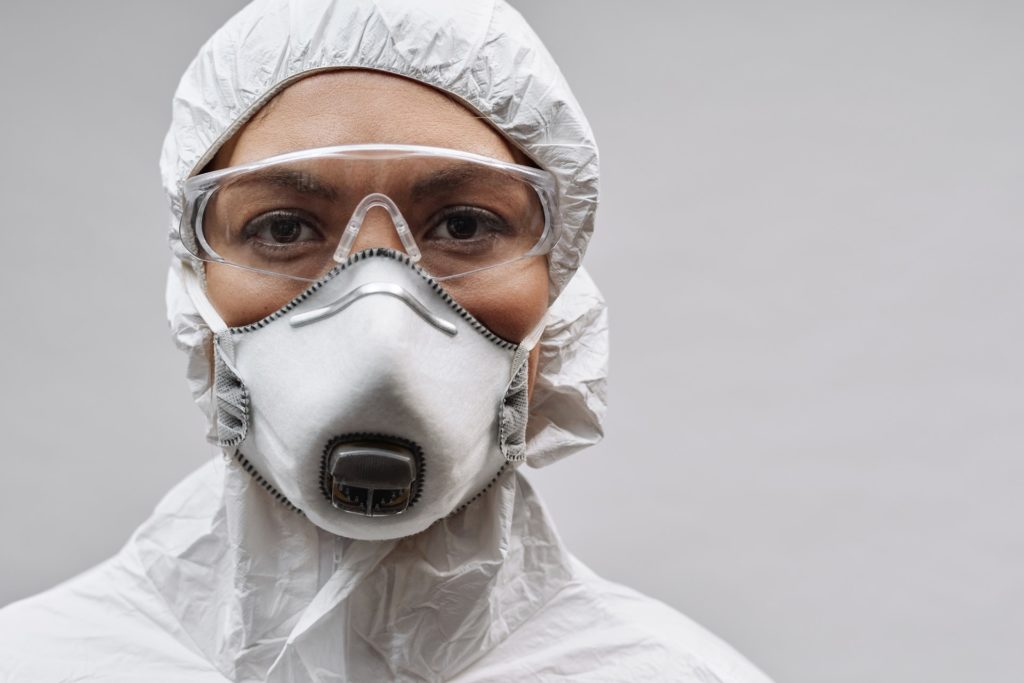
By: Colette Shade, LMSW
With one of the top conversations of 2021 being whether or not to get vaccinated (despite overwhelming scientific evidence toward the former), for many, Nicki Minaj’s recent controversy around her own skepticism was just another voice in that conversation. Like many celebrity pseudo-science claims, it’s expected that we take it in stride and quickly brush it off. But for others, it reignited conversations around healthcare equity and why, for some communities, hesitancy and distrust toward healthcare professionals runs deeper than social media conspiracy theories. Understanding the scandals and malpractice that have affected generations of people of color, especially Black Americans, is an essential lesson for all healthcare workers as culturally aware care becomes known more and more as a necessary part of the job.
Today, informed consent is seen as the baseline of medical ethics and law in America; a dead body, if not designated as an organ donor, is still given its rightful autonomy to be left alone. This is a relatively new practice though, and, even after its creation, one that has not always been applied equally. In 1951, Dundalk resident Henrietta Lacks went to Johns Hopkins, the only hospital in the area that treated Black patients, after feeling a “knot” in her cervix. The knot was cervical cancer. While she received treatment, unconscious on the operating table, her doctor took a biopsy without previously informing her, explaining why, or even requesting her consent to take the tissue cells. Just over six months later, Lacks succumbed to her cancer at the age of 31. The HeLa cell line, however, is still reproducing today.
Lacks’ cells endlessly reproduced, allowing scientists to directly perform tests on human tissue outside the body for the first time. HeLa cells have led to the polio vaccine, gene mapping, in-vitro fertilization, cosmetics testing, three Nobel prizes to date, have been to space, and, for decades after Henrietta Lacks’ death, were kept completely anonymous without credit to her or reparations to her family.
In conjunction with Lacks’ daughter, Deborah, journalist Rebecca Skloot’s 2010 book The Immortal Life of Henrietta Lacks brought national attention to Lacks’ story and highlighted the ways that American healthcare providers and researchers have historically exploited Black patients. The eugenics movement held a strong foothold in the American healthcare community after its inception in the late 19th century, directly impacting anti-miscegenation and immigration laws, and openly continued as late as the 1940s. This legal and ethical distinction between Black and white patients infamously led to the USPHS Syphilis Study at Tuskegee (commonly known as the Tuskegee Syphilis Experiment), starting in 1932 and only being publicly revealed, including to the participants, in 1972. Like Lacks, the study participants, all of whom were Black men, did not provide informed consent; instead, they were told they’d be treated for “bad blood,” which included everything from anemia to fatigue, and were blocked from receiving penicillin upon its invention in 1943. Similar stories persist throughout the 20th century of forced sterilizations of Black, Latina, and Indigenous prisoners, citizens with IQs deemed “too low”, and new mothers immediately after giving birth. For some states, the last forced sterilization procedure was as late as the 1980s; for others, it occurred as recently as last year.
While no longer openly practiced, that doesn’t mean that the mindset of doctors’ ownership over non-white patients’ autonomy has disappeared. Complications that arise during Black patients’ medical care are often ignored or belittled as “complaining,” leading to higher levels of pain, different treatment recommendations, more likely medical complications, and even death. A reported half of white medical trainees even believe seemingly unbelievable myths like Black patients having thicker skin and fewer nerve endings.
Given the history of medical abuse generations of Americans have faced, and the malpractice that continues today, it’s not surprising that many Black Americans struggle to trust healthcare providers. So, what should healthcare providers do to create trust?
One of the most important things healthcare providers can do is to educate themselves on this history. Books like The Immortal Life of Henrietta Lacks and Harriet A. Washington’s Medical Apartheid confront the work that has come at the expense of Black patients, historically to advance medical services they were then barred from accessing. A focus on and knowledge of these complex systems allows healthcare providers to understand how in their own work they may be benefiting from these expenses (HeLa cells support a multibillion-dollar biotechnology industry and scientists still buy vials for anywhere from $400 to thousands of dollars). Though not about race specifically, The Inner Level by Richard A. Wilkinson and Kate Pickett is a necessary look at the mental health consequences of life in an unequal society.
When healthcare providers recognize the inequality in the society around them, it opens the door for the kind of care and awareness that comes from cultural humility. Cultural humility is “a process of being aware of how people’s culture can impact their health behaviors and in turn use this awareness to cultivate sensitive approaches in treating patients.” Providers should be open to the idea that people from different cultural backgrounds, while not monolithic, might have beliefs and practices that are different from their own. This allows doctors, nurses, therapists, etc. to provide culture-specific health care that addresses patients’ needs and backgrounds while still respecting their boundaries and any personal, societal, or generational trauma they may be experiencing. Hiring and professionally investing in more clinicians of color is an easy way to do this; a shared racial background allows for a higher chance of shorthand and, for communities that have historically been medically exploited, a higher chance of trust and comfort for the patient.
The distrust many Black Americans feel toward healthcare providers does not exist in a vacuum. We can currently see the effects. While some like Nicki Minaj remain skeptical, gaps in vaccination rates across racial lines have closed; COVID-19, though, has already hit Black, Hispanic/Latino, and Indigenous communities markedly harder than their white counterparts. It should be no mystery or coincidence why. A medical system that has historically not worked for people of color has proven itself in dire circumstances to largely still not work for people of color. Cultural sensitivity is not about being sensitive; it is an investment in public health. It should come as no surprise then, when looking at stories like Henrietta Lacks’, that even with this history a disproportionate amount of front-line hospital workers supporting the medical field and bolstering its advancement have been women of color.
In 2017, Baltimore mayor Catherine Pugh declared October 4 “Henrietta Lacks Day.” A year later, Johns Hopkins announced that it would name a research building after her on its East Baltimore campus. Last year the Howard Hughes Medical Institute announced a six-figure gift to The Henrietta Lacks Foundation. That same year, she was inducted into the National Women’s Hall of Fame.
DISCLAIMER
The information, including but not limited to, text, graphics, images and other material contained on this website are for informational purposes only. No material on this site is intended to be a substitute for professional medical advice, diagnosis, or treatment. Always seek the advice of your physician or other qualified healthcare provider with any questions you may have regarding a medical condition or treatment and before undertaking a new health care regimen, and never disregard professional medical advice or delay in seeking it because of something you have read on this website.






